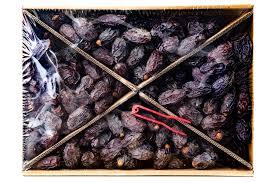Medjoul Dates: The King of Dates and Their Rising Global Popularity

Medjoul dates, often referred to as the "King of Dates," are among the most popular and sought-after varieties of dates in the world. Known for their large size, rich caramel-like flavor, and soft, chewy texture, Medjoul dates have become a favorite among health-conscious consumers, gourmet food enthusiasts, and those looking for natural sweeteners. Grown primarily in the Middle East and North Africa, particularly in countries like Israel, Palestine, Jordan, and Morocco, Medjoul dates have a long history rooted in traditional agriculture and cultural heritage.
Origins and Cultivation
The origin of Medjoul dates can be traced back to the ancient Middle East. These dates have been cultivated for thousands of years in arid regions where date palms thrive. Medjoul date palms require a hot, dry climate and plenty of sunshine, making desert regions ideal for their cultivation. The trees are typically hand-pollinated and take several years to mature and bear fruit. Once they start producing, each tree can yield up to 150 kilograms of dates annually.
Harvesting Medjoul dates is a labor-intensive process. Workers must climb tall date palms to carefully pick the ripe fruits by hand, ensuring that each date is harvested at the peak of ripeness. After harvesting, the dates are sorted, cleaned, and sometimes lightly dried to enhance their shelf life.
Nutritional Benefits
Medjoul dates are not just delicious; they are also packed with nutrients. They are an excellent source of natural sugars such as glucose, fructose, and sucrose, which provide a quick energy boost. This makes them a popular choice for athletes, people observing fasting practices, and those seeking a healthy snack alternative.
In addition to natural sugars, Medjoul dates contain dietary fiber, which aids digestion and promotes gut health. They are also rich in essential minerals like potassium, magnesium, copper, and iron. These minerals play a vital role in supporting cardiovascular health, maintaining strong bones, and boosting the immune system. Furthermore, dates contain antioxidants such as flavonoids, carotenoids, and phenolic acid, which help combat oxidative stress and inflammation in the body.
Culinary Uses
Medjoul dates are incredibly versatile and can be used in a variety of culinary applications. Their natural sweetness makes them a perfect ingredient for desserts such as date bars, puddings, and energy balls. They can also be blended into smoothies, chopped into salads, or stuffed with nuts and cheese for an elegant appetizer.
One of the most popular uses of Medjoul dates is as a natural sweetener in baking. Replacing refined sugar with date paste or chopped Medjoul dates can enhance the nutritional value of baked goods while adding a rich, caramel flavor.
Economic and Cultural Importance
The cultivation and export of Medjoul dates have become an important economic activity for many countries in the Middle East and North Africa. These dates are exported to markets around the world, including Europe, North America, and Asia. The global demand for Medjoul dates has increased steadily, driven by growing interest in healthy, plant-based foods and natural alternatives to processed sugars.
Culturally, Medjoul dates hold a special place in many religious and traditional practices. In Islam, dates are commonly consumed during the holy month of Ramadan to break the fast, a practice that dates back to the time of the Prophet Muhammad. In Judaism, dates are one of the seven species listed in the Hebrew Bible as special products of the Land of Israel. These cultural associations contribute to the continued popularity and reverence of Medjoul dates.
Conclusion
Medjoul dates are more than just a sweet treat. They represent a fusion of tradition, health, and flavor. Their growing global appeal is a testament to their unique qualities and numerous health benefits. Whether eaten on their own or incorporated into recipes, Medjoul dates offer a delicious and nutritious option for anyone looking to enjoy the natural goodness of this ancient fruit.
- Art
- Causes
- Crafts
- Dance
- Drinks
- Film
- Fitness
- Food
- Games
- Gardening
- Health
- Home
- Literature
- Music
- Networking
- Other
- Party
- Religion
- Shopping
- Sports
- Theater
- Wellness


